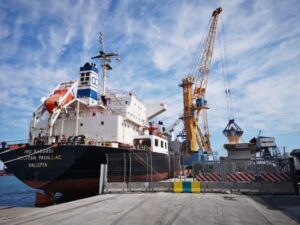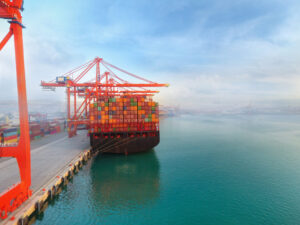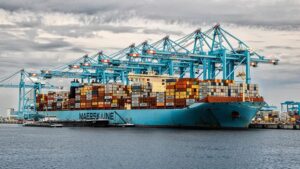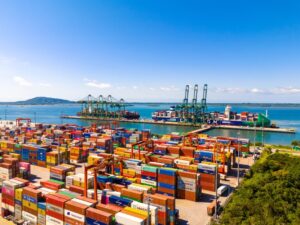Both the British Ports Association (BPA) and the UK Major Ports Group (UKMPG) have responded to calls that the UK Government hold an inquiry into the congestion and disruption being faced at UK Ports.
The British Retail Consortium (BRC) and the Food and Drink Federation (FDF) have written to Lilian Greenwood MP, Chair of the Commons Transport Select Committee, and Angus Brendan MacNeil MP, Chair of the Commons International Trade Committee, to request an urgent inquiry into the ongoing disruption at UK ports and across the shipping market.
The 17 December letter points to the significant impact that disruption is having on shipping-related costs, noting that “container spot rates have jumped considerably – in one instance, by 170% from this time last year. Others have noted week-on-week cost rises of 25%. In addition, congestion charges are being levied by carriers for imports into Felixstowe and Southampton.”
Despite some of the disruption being attributed to the end of the Brexit transition period which is set for 31 December a lot of the issues UK Ports are facing are part of a global-scale problem.
Additional insight: How an empty box can cause supply chain havoc
In a statement on global container congestion Richard Ballantyne, Chief Executive, BPA, said, “Whilst we appreciate difficulties that some importers have experienced in recent weeks, this is certainly not a systemic issue nor is it unique to the UK. The underlying issues are well understood and there is no case for significant intervention or change to Government policy.
“We are aware that some in the freight sector have seen increases in shipping costs. This is not something the ports sector has any control over and is a challenge for the shipping community.”
Tim Morris, CEO, UK Major Ports Group, said in a statement “The impact of COVID-19 has put unprecedented pressures on global supply chains. Imbalances have built up over time and there is strong demand globally for many goods sourced from Asia. It is undoubtedly a difficult situation, with ports and businesses around the world impacted.”
He notes that the UK also has some additional pressures from stock build before the end of the Transition period from the EU. Morris also said that Ports serving Asian trade routes are making real improvements against demand that remains 15-25% above comparable periods last year.
“They have hired more staff, committed more resources and are working closely with supply chain partners. Ports handling shorter distance container journeys, whilst busy, have additional capacity. We are in close contact with Government and progressing practical measures to increase the flow of containers on and off ports.
“But we are certainly not complacent. Global demand remains very high – reflected in high shipping costs that are not driven by ports – and there are no immediate, magic wand solutions,” he concluded.









